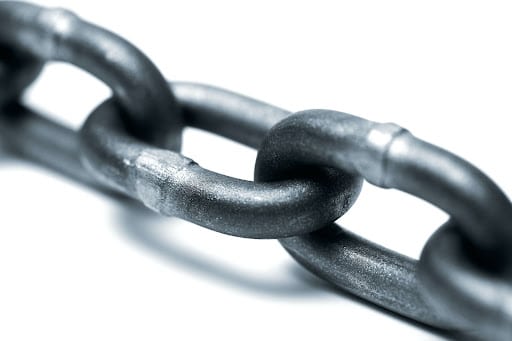The trauma of an abusive relationship might create an emotional storm that leaves you struggling to make sense of, especially when abuse alternates with kindness and intimacy.

It is possible to break the trauma bonding, especially once you’re familiar with what it is. Learn more with these best trauma bonding quotes to overcome trauma.
Let’s dive in.
Trauma Bonding Quotes
- “But we have each other. And we’ll keep choosing each other, and keep getting better, together.” – H.E. Edgmon
- “The capacity for dissociation enables the young child to exercise their innate life-sustaining need for attachment in spite of the fact that principal attachment figures are also principal abusers.” – Warwick Middleton
- “Some also learned that personal safety and happiness are of lower priority than survival and that it may be safer to give in than to actively fight off additional abuse and victimization.” – Christine A. Courtois
- “The little girl’s dependency on her father made [his] abuse more insidious.” – Joan Frances Casey
- “Increasing emotional intimacy with a person who is forcing physical intimacy makes sense in our minds. It resolves cognitive dissonance.” – Rosenna Bakari
- “Many survivors have such profound deficiencies in self-protection that they can barely imagine themselves in a position of agency or choice.” – Judith Lewis Herman
- “Although the victim may disclose the abuse, the trauma bond means that the victim may also wish to receive comfort from the very person who abused them.” – Unknown
- “Delusional pain hurts just as much as the pain from actual trauma. So what if it’s all in your head?” – Tracy Morgan
- “Sometimes the adjustment that the mind makes is for the victim to bring her or his behavior in line with the violator, since the violator cannot be controlled by the victim. Our greatest source of survival is to adapt to our environment.” – Rosenna Bakari
- “It is not uncommon to find adult survivors who continue to minister to the needs of those who once abused them and who continue to permit major intrusions without boundaries or limits.” – Judith Lewis Herman
- “When all you know is fight or flight, red flags and butterflies all feel the same.” – Cindy Cherie
- “To live in the body of a survivor is to never be able to leave the scene of the crime. I cannot ignore the fact that I live here.” – Blythe Baird
- “When there is inconsistency in belief and action (such as being violated by someone who is supposed to love you) our mind has to make an adjustment so that thought and action are aligned.” – Rosenna Bakari
- “Adult survivors may nurse their abusers in illness, defend them in adversity, and even, in extreme cases, continue to submit to their sexual demands.” – Judith Lewis Herman
- “I wondered, as I wondered so often when I was that age, who I was, and what exactly was looking at the face in the mirror. If the face I was looking at wasn’t me, and I knew it wasn’t, because I would still be me whatever happened to my face, then what was me? And what was watching?” – Neil Gaiman
- “When abuse is perpetrated by intimates, it is additionally confounding in terms of attachment, betrayal, and trust.” – Christine A. Courtois
- “I think my biggest fear is dying. Although sometimes my biggest fear is not dying. But yeah, I think health stuff for me is more what I’m afraid of.” – Kathleen Hanna
- “The capacity for dissociation enables the young child to exercise their innate life-sustaining need for attachment in spite of the fact that principal attachment figures are also principal abusers.” – Warwick Middleton
- “Intimacy requires a slow, cumulative build of safety between people who agree to a relationship, an ongoing connection of care and concern. The performance of pain is essentially a form of bonding over trauma, and people can get addicted to their endorphins.” – Lierre Keith
- “Betrayal is a more subtle, twisted feeling than terror. It burns and eats, but terror stabs right through.” – Wendy Hoffman
- “Secure attachment has been linked to a child’s ability to successfully recover and prove resilient in the presence of a traumatic event.” – Asa Don Brown
- “The capacity for dissociation enables the young child to exercise their innate life-sustaining need for attachment in spite of the fact that principal attachment figures are also principal abusers.” – Warwick Middleton
- “Their experiences led them to create assumptions about others and related beliefs about themselves such as “this is my lot in life” and “this is what I deserve.” – Christine A. Courtois
- “I wanted my mother to love me. Despite all the torture and brutality.” – Wendy Hoffman
- “It is rare for even adult children to abandon their mother, regardless of how many times their mother has abandoned them.” – Christine Ann Lawson
- “They may have also experienced trauma bonding over the course of their victimization, that is, a bond of specialness with or dependence on the abuser.” – Christine A. Courtois
- “Trauma is hell on earth. Trauma resolved is a gift from the gods.” – Peter A. Levine
- “A lot of people who have experienced trauma at the hands of people they’ve trusted take responsibility, and that is what’s toxic.” – Hannah Gadsby
- “PTSD (Post Traumatic Stress Disorder) occurs following a trauma that was so awful that in retrospect you don’t understand how you survived. What that causes is an extreme feeling of vulnerability that you get past but that doesn’t go away.” – Paul Goulston
- “What we change inwardly will change outer reality.” – Plutarch
- “It is only in sorrow bad weather masters us; in joy we face the storm and defy it.” – Amelia Barr
- “Healing from trauma can also mean strength and joy. The goal of healing is not a papering-over of changes in an effort to preserve or present things as normal. It is to acknowledge and wear your new life – warts, wisdom, and all – with courage.” – Catherine Woodiwiss
- “Instead of saying ‘I’m damaged, I’m broken, I have trust issues.” I say “I’m healing, I’m rediscovering myself, I’m starting over.” – Horacio Jones
What Is A Trauma Bond?
Trauma bonding often occurs when an abuser creates an intensely emotional experience for the victim. The experience can either be verbal or physical in nature, but it must involve some kind of power imbalance between victim and perpetrator. This can create trauma bonding.
This emotional connection, called trauma bonding, develops out of a repeated cycle of abuse, devaluation, and positive reinforcement.
It’s only natural to develop a bond with someone who treats you with kindness. Many abusive relationships begin with a shower of affection and assurances of love.
So, when the traumatic event begins, it can take you by surprise. Afterward, your partner might apologize, swear to change, or insist “I was just upset.”
These attempts at manipulation often succeed. You choose to remember the early days of the relationship and believe they can be that person again for self preservation.
Some trauma bonding scenarios:
- Childhood pain from an abusive caregiver or another adult
- Hostage and kidnapper
- Leader and members of a cult
Is Trauma Bonding Always Bad?
A trauma bond is usually associated with negativity in terms of relationships. In some cases, however, trauma bonding can help people cope with the traumatic experiences they’ve had in the past. Negative trauma bonds are a prevalent thing in relationships that can be detrimental to mental health.

It may not be a common belief, yet trauma bonding can be a positive thing. Sharing common pain with someone who has experienced a similar traumatic experience as you have can feel good.
Shared experiences like car accidents or the death of a family member can come to light during social interactions with people you may not know that well.
This type of trauma bonding experience can make someone feel more secure in the attachment because of the support or understanding from people with the same experience.
In romantic relationships, trauma bonding can bring couples closer together and help them overcome their challenges as a unit.
Tragic experiences centered around pregnancy complications, like a miscarriage or a stillbirth, can help a couple grow when the loss is processed together.
If the couples choose to move forward together and choose to support each other emotionally, it can become a positive experience for their relationship. Ultimately, the traumatic experience can solidify the already existing bond in a relationship.
However, in all trauma bonding relationships, it’s important not to marinate in the trauma. The best outcome could be to use the trauma to support each other to release the emotions associated with the trauma.
Trauma Bonding Signs
Trauma bonding is a psychological phenomenon that happens between an abused individual and the abuser. It is a very strong emotional attachment to the abuser, which is generally based on fear of the abuser, perception of isolation, and/or cognitive impairment.
1. Cycle of Abuse
Abusers don’t always treat their victims poorly; they can apologize, promise to change, profess to be in love, and do other things to keep their relationship.
There are five main types of abuse that might be present:
- Emotional
- Physical
- Verbal
- Sexual
- Psychological
2. Power Imbalance
If the abuser holds power over the victim, like financial power or emotional power, where the victim’s emotional defenses have been broken down and they feel defined by the relationship with their abuser.
3. Not Being Able To Leave
A power imbalance leaves the person feeling unable to exist outside the relationship. With powerful trauma bonds, it can take support from friends or family and sometimes therapy to break.
4. Threat Of Physical Violence
The fear of escalating violence can be a powerful factor that keeps people from leaving. The abuser could also threaten or do harm to others close to the victim — children, pets, or even people who attempt to intervene.
5. Making Excuses for the Behaviour
The victim often excuses the abuse by downplaying the severity or by blaming themselves. Or the abuser tells the victim the abuse never happened, wasn’t actually that bad, or they deserved it.
Eventually the victim questions reality and begins believing the lies they were told — and repeats them to themselves and others.
6. Keeping the Abuse a Secret
The victim may think others wouldn’t understand why they didn’t think it was a big deal; fear the consequences of it becoming public; feel ashamed of being abused — or all of the above.
Trauma bonds lead to powerful emotional attachments… meaning the victim likely feels something they think is love towards their abuser, and wants to protect them.
7. Wanting To “Please” the Abuser
Hormones also can play a role here — the intense love shown during the cycle of abuse causes the release of dopamine, which serves a “reward” for the abuse, just like addictions.
Physical intimacy releases oxytocin. However, trauma bonds are actually created by kindness and intimacy being used to override our natural negative feelings that result from abuse.
8. Distancing from People Trying To Help
The fewer people around, the less chance the victim can see the abuse they experience is unacceptable. “You know your mother doesn’t want you to be happy” — or by forcing the victim to cut off friendships — “I don’t want you to see that friend anymore.”
9. Fixating on “The Good Days”
Focusing on the good days and ignoring domestic violence or other types of abuse is just avoiding reality. Despite trauma bonding, no amount of kindness or affection outweighs emotional or physical abuse.
10. Hoping To Change Them
“If they would just stop [abusive behavior], we’d have the perfect relationship.” With the good times in the relationship that cause the victim to feel love, it can feel like change is possible.
11. Wanting Love Despite the Abuse
People who are being abused often have low self-esteem and they want to feel loved, even if that love is part of the cycle of abuse. They might believe no one else will love them, so the only choice they can see is to accept the love being shown by their abuser.

Trauma Quotes
- “There are all kinds of addicts, I guess. We all have pain. And we all look for ways to make the pain go away.” – Sherman Alexie
- “God wants you to be delivered from what you have done and from what has been done to you. Both are equally important to Him.” – Joyce Meyer
- “I had been fortified by trauma, the way a bone, once broken, grows back stronger than it had been.” – Charles Blow
- “The wound is not my fault but the healing is my responsibility.” – Williamson
- “The habits you created to survive will no longer serve you when it’s time to thrive. Get out of survival mode. New habits, new life.” – Eboni Davis
- 57. “Just because pain is part of your story, doesn’t mean it must be part of its ending.” – Stephanie M. Hutchins
Related: 11 Ways To Overcome Hyper Independence Trauma (+Signs, Test & Psychology)
Narcissist Trauma Bonding Quotes
- “Ultimately, it is not your ability to beat the narcissist at his or her own game that frightens them. Playing games with someone with no remorse or empathy is sure to fail. Rather, it is your ability to seek your own validation and move forward into your success, channeling the experiences that were meant to destroy you into your greatest victories, that is appalling to these predators. How dare their former victims become independent of their bullying and become even greater in spite of it? Oh, but they can, and they will.”
— Shahida Arabi
- “Remember – highly manipulative people don’t respond to empathy or compassion. They respond to consequences.”
— Shahida Arabi
- “Just because your pain is understandable, doesn’t mean your behavior is acceptable.”
— Steve Maraboli, Dr. Steve Maraboli
- “Highly sensitive beings suffer more but they also love harder, dream wider and experience deeper horizons and bliss. When you’re sensitive, you’re alive in every sense of this word in this wildly beautiful world. Sensitivity is your strength. Keep soaking in the light and spreading it to others.’”
— Victoria Erickson
Trauma bonding Quotes
Here are a few more trauma bonding quotes:
- “Our lives begin to end the day we become silent about the things that matter.” – Martin Luther King Jr.
- “Don’t let your loyalty become slavery.” – Kushandwizdom
- “It’s never pretty when you leave an abusive and controlling relationship. The warden always protests when the prison gets shut down.” – Dr. Steve Mariboli
- “Betrayal is the only truth that sticks.” – Arthur Miller
- “After a series of trauma, one can lose the capacity to feel fear appropriately.” – Jessica Stern
- “I’m not crying because of you, you’re not worth it. I’m crying because my delusion of who you were was shattered by the truth of who you are.” – Dr. Steve Maraboli
How To Get Over Trauma Bonding
There are a few key ways to help get through the break-up process after trauma bonding.
1. Separate Yourself
This means leaving and cutting all methods of contact. It might also mean moving to a different city. It’s important to plan ahead and know what you’re going to do.
2. Develop a Support Network
Maybe it’s your best friend, parent, or coworker. Just finding someone you can trust, who knows the situation, is important. They can keep you accountable and you’ll have someone you can lean on for advice or a shoulder to cry on when you need it.
3. Recognize Your Trauma
It’s important to understand the seriousness of your experience. Trauma can manifest in a number of ways, and it’s important to work through your feelings.
If you have access to therapy, it might be the best option. Look for a therapist with experience in post traumatic stress injury. Therapy can help you heal and prevent you from coping in other dangerous ways, like substance use.
It can also be helpful to write things down. Keeping a diary or journal to document your progress can help you see how far you’ve come and motivate you to keep going.
As with any other breakup, it will take time to recover. Having a friend there for you will help you heal and see that there’s more to life than one relationship.
You’re encouraged to share this article with a friend or leave us a comment to let us know how you liked it.
